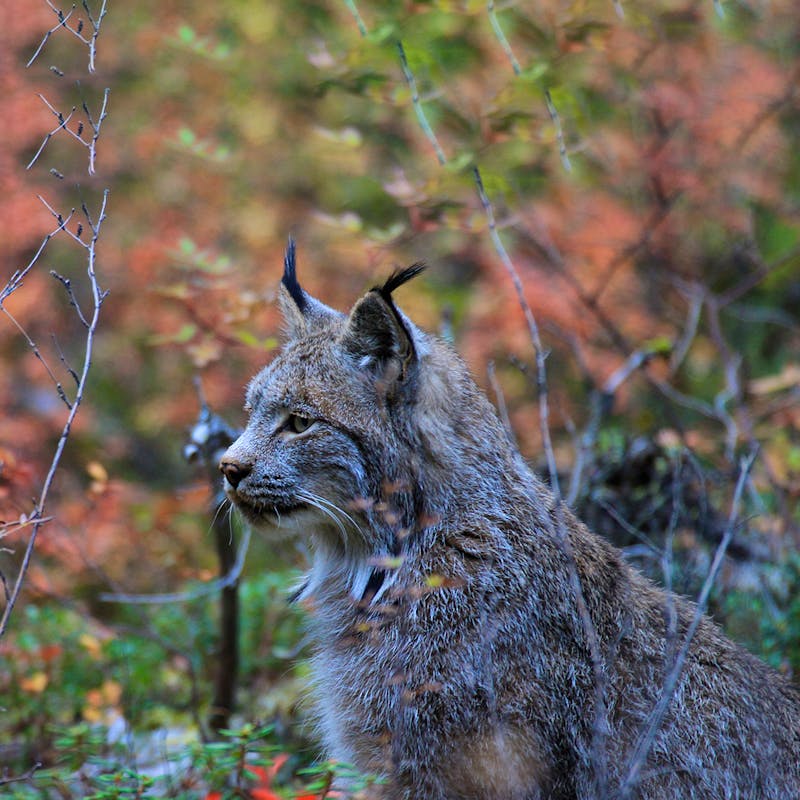Defenders of Wildlife notified the U.S. Forest Service today that they will be filing a lawsuit over the agency’s failure to protect the Canada lynx in the final revised land management plan for the Rio Grande National Forest, in violation of the Endangered Species Act. The persistence of lynx in Colorado is now in jeopardy, as the Forest Service has opened hundreds of thousands of acres of lynx habitat to largely unregulated logging under the new plan.
The Rio Grande National Forest, located in southcentral Colorado, abandoned essential habitat protections for the lynx in its revised plan—a significant departure from the prior plan that limited logging, a key threat to the species. In addition, the lynx population in the Southern Rockies is small and vulnerable to threats that also include climate change. In fact, government scientists have estimated that lynx will struggle to survive the warming forest, making removals of Rio Grande National Forest’s habitat protections even more alarming. The U.S. Fish and Wildlife’s 2017 species status assessment predicted that the Western Colorado unit of lynx may be extirpated by 2100.
During the comment period, hundreds of local community members and citizens throughout the country urged the Forest Service to include strong safeguards for wildlife and habitat, special designations to protect wildlife corridors, and recommendations for wilderness areas. Such land protections would have helped promote lynx recovery. Instead, the Rio Grande National Forest adopted a new plan that puts the species at greater risk of extinction.
Lauren McCain, senior policy analyst, Defenders of Wildlife, issued the following statement:
“The U.S. Forest Service’s new plan abandons key habitat for Canada lynx and opens the door to nearly unregulated logging – putting the chances of lynx surviving in Colorado on thin ice. When government agencies like the U.S. Forest Service fail to meet their conservation obligations under the law, Defenders of Wildlife will step up to hold them accountable and, in this case, to protect the Canada lynx from once again being pushed to the brink of extinction.”
Background:
The Rio Grande National Forest is a 1.83 million acre gem located in the middle of southern Colorado that contains significant areas of high-elevation spruce-fir forest that provide essential Canada lynx habitat. It is the most important national forest in the Southern Rockies for the lynx. Between 1999 and 2006, Colorado wildlife officials reintroduced 218 lynx into the state to reestablish a population; 85% of the reintroduced animals were released in the Rio Grande National Forest.
After the Fish and Wildlife Service listed the Canada lynx as threatened in the lower 48 states in 2000, each national forest in the Southern Rockies adopted management plan amendments that limited logging across lynx habitat and regulated other threats such as motorized recreation. The Rio Grande’s revised plan significantly weakens these protections and will remain the forest’s blueprint for managing resources for at least 15 years and probably many more.
The forest experienced a spruce bark beetle outbreak that began in 2002 and wound down in the last few years that killed massive numbers of spruce trees and nearly eliminated what biologists considered the best habitat for lynx. The new management plan enables salvage logging in the habitat that the cats are now using the most.
For over 75 years, Defenders of Wildlife has remained dedicated to protecting all native animals and plants in their natural communities. With a nationwide network of nearly 2.1 million members and supporters, Defenders of Wildlife is a leading advocate for innovative solutions to safeguard our wildlife for generations to come. To learn more, please visit https://defenders.org/newsroom or follow us on X @Defenders.
Media Contact
News

Colorado Releases Wolverine Reintroduction Plan, Defenders Stands Ready to Support


